In 2010, we told you about Colorado National Monument’s ban on the sale of disposable water bottles. What we didn’t tell you is that the ban nearly fell apart in the eleventh hour. Dasani Water made a big push to stop the ban—and almost succeeded—just days before it was to go into effect.
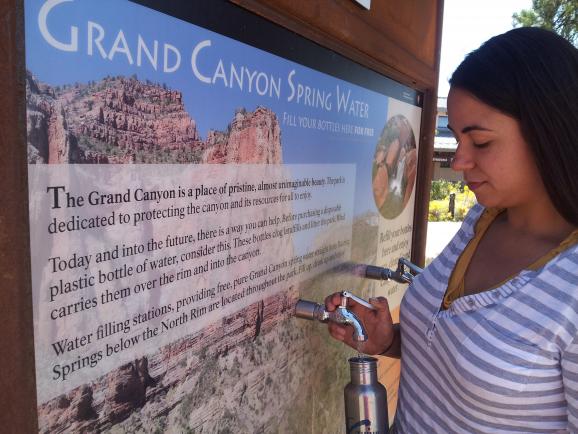
At the same time, National Park Service abandoned its plan to end disposable water product sales in 75 percent of all visitor facilities by 2016. Continue reading
Tag Archives: Plastics Reduction
Using Reusable Water Bottles: Five Tips for a Successful Switch
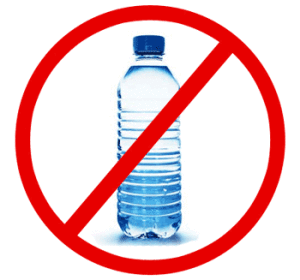 Using reusable water bottles is a smart decision! They’re better for the environment than disposable bottles, because they generate less waste. They’re better for your wallet, because tap water costs less money. And, they’re better for your body, because you’ll always have a trusty water bottle at your side!
Using reusable water bottles is a smart decision! They’re better for the environment than disposable bottles, because they generate less waste. They’re better for your wallet, because tap water costs less money. And, they’re better for your body, because you’ll always have a trusty water bottle at your side!
Are you ready to make the switch to using reusable bottles, but aren’t sure how to turn that idea into practice? Here are some tips to get you started: Continue reading
Recycled, Recyclable, Reusable—What’s the Difference, Anyway?
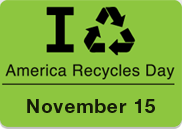 November 15 has marked America Recycles Day since 1997. It’s the only nationally recognized day dedicated to the promotion of recycling in the United States.
November 15 has marked America Recycles Day since 1997. It’s the only nationally recognized day dedicated to the promotion of recycling in the United States.
But what’s the difference between a recycled water bottle, a bottle that’s recyclable, and a reusable water bottle? The three words are often interchanged, but they shouldn’t be.
A recycled bottle has been made from materials that have been previously used. These “materials” are often referred to as post-industrial waste and post-consumer waste.
World Oceans Day 2013 is Coming
The Eleventh Annual World Oceans Day is coming! On June 8, join millions of people around the world to celebrate the water that links us all.
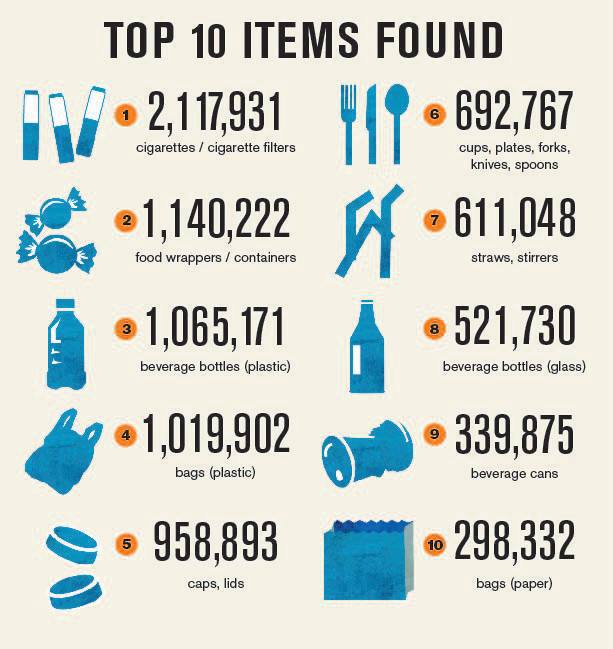 Since 2002, The Ocean Project and The World Ocean Network have worked together to coordinate events worldwide. World Oceans Day encourages individuals to think about what the ocean means to them, and how it can be conserved for future generations. When we learn how our daily actions affect the ocean and its inhabitants, we can begin to make changes—even small modifications to everyday habits—that will benefit the ocean.
Since 2002, The Ocean Project and The World Ocean Network have worked together to coordinate events worldwide. World Oceans Day encourages individuals to think about what the ocean means to them, and how it can be conserved for future generations. When we learn how our daily actions affect the ocean and its inhabitants, we can begin to make changes—even small modifications to everyday habits—that will benefit the ocean.
High School Group Fights for Less Waste, More Reusable Water Bottles
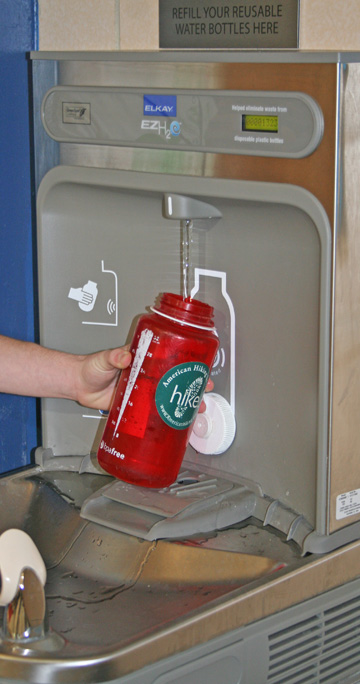 A group of 30 high school students in Kentucky banned together with some impressive allies to install reusable water bottle refilling stations in area high schools.
A group of 30 high school students in Kentucky banned together with some impressive allies to install reusable water bottle refilling stations in area high schools.
The Bluegrass Youth Sustainability Council secured funding from Kentucky American Water and the FCPS Child Nutrition Department, and has been instrumental in replacing two water fountains at each school with the fill stations. The stations are located in the school cafeterias and in a second, high-traffic, location. They group is also encouraging students to bring reusable water bottles to school to reduce plastic waste in landfills.
After the first week of use, more than 3,600 reusable bottles were filled throughout five high schools, and usage has been increasing.
Reusable Water Bottles: Bring ‘Em to Colorado National Monument
The Colorado National Monument is turning to reusable water bottles to help the environment.
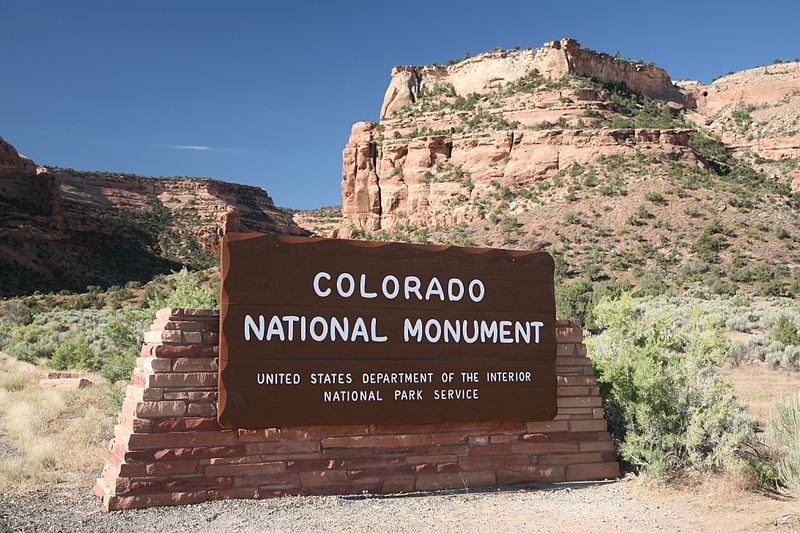
A spokesperson for the park said that a large percentage of waste on trails and roadways is attributed to single-use plastic water bottles. As a result the park has banned the sale of these water bottles. The move will also reduce the risk of park animals ingesting plastic.
Single-Use Plastic Water Bottle Ban Proposed in Maine
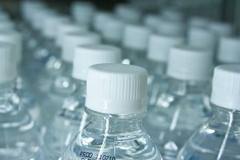 On Monday, a ban on single-use water bottle purchases by state and local governments was proposed to the Maine legislature. Proponents said it would save money and position Maine for a leadership role in a nationwide effort to reduce plastic bottle waste.
On Monday, a ban on single-use water bottle purchases by state and local governments was proposed to the Maine legislature. Proponents said it would save money and position Maine for a leadership role in a nationwide effort to reduce plastic bottle waste.
Rep. Ben Chipman, a Portland independent and co-sponsor of the bill, said the bill’s passage would result in less waste and send a positive message about the state’s public water supply.
Naturally, the proposal was met with opposition. Some claimed that the bill was written too broadly and failed to include a provision for emergency situations. Others downplayed the issue as minor in their state government.
The Maine Department of Transportation spends nearly $30,000 annually on bottled water—about half of all state spending on bottled water.
Proponents pointed to studies showing no substantial differences in the quality of bottled water and public water supplies. They also referred to a similar ban in San Francisco, which in 2007 prohibited city departments from purchasing bottled water, and Concord’s (MA) recent ban on single-serving water bottles within its town limits.
Plastic Bottle Bans: The New Normal?
 On January 1, the town of Concord, Massachusetts, became the first municipality in the nation to ban the sale of single-serving water bottles smaller than 34 ounces.
On January 1, the town of Concord, Massachusetts, became the first municipality in the nation to ban the sale of single-serving water bottles smaller than 34 ounces.
The bill is the result of town activists—primarily town resident Jean Hill, 84. Hill told the New York Times in 2010, “The bottled water companies are draining our aquifers and selling it back to us.” She led two other attempts to ban the plastic bottles before the April measure passed the Town Council.
Stores that violate the ban and sell bottled water will receive a warning on the first offense, a $25 fine for the second, and $50 for each subsequent infraction. The ban would be suspended during emergencies.
Recycled Plastic Water Bottles Are Charging Cell Phones
 Motorola has developed a universal battery pack that uses recycled plastic water bottles. That’s right, 25% of its P793 charger’s external housing is comprised of recycled post-consumer water bottles!
Motorola has developed a universal battery pack that uses recycled plastic water bottles. That’s right, 25% of its P793 charger’s external housing is comprised of recycled post-consumer water bottles!
We hope you’re using reusable plastic water bottles, but if you DO happen to have a pesky disposable bottle laying around, be sure to properly recycle it so as to give it a chance help keep your battery from dying! Yes, it might be a long shot, but it’s pretty cool to think about.
The more recycled plastics are used by manufacturers, the less virgin plastic material that gets produced. That translates to less toxins going into the air and into the ground, and a cleaner, greener environment as a result. But, if everyone used reusable water bottles, this would be a nonissue to begin with!
For more information about the charger, visit Motorola’s web site.
How to Recycle Holiday Waste
The holidays usually mean gift giving, and we hope that when you’re done giving, you recycle what you can. However, just what can go in your recycle container is not necessarily cut and dry. Here are some tips on how to recycle holiday waste.
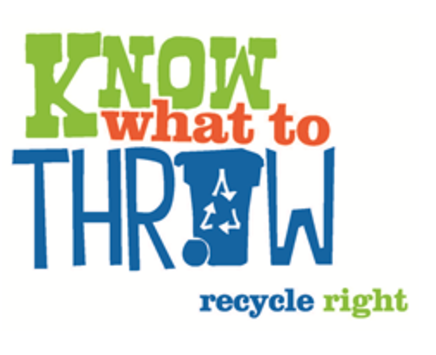 Wrapping Paper: Wrapping paper is generally produced with chemical dyes that contribute to water pollution. Although you can put some wrapping paper in the recycling bin, the heavy inks downgrade the quality of the paper.
Wrapping Paper: Wrapping paper is generally produced with chemical dyes that contribute to water pollution. Although you can put some wrapping paper in the recycling bin, the heavy inks downgrade the quality of the paper.
